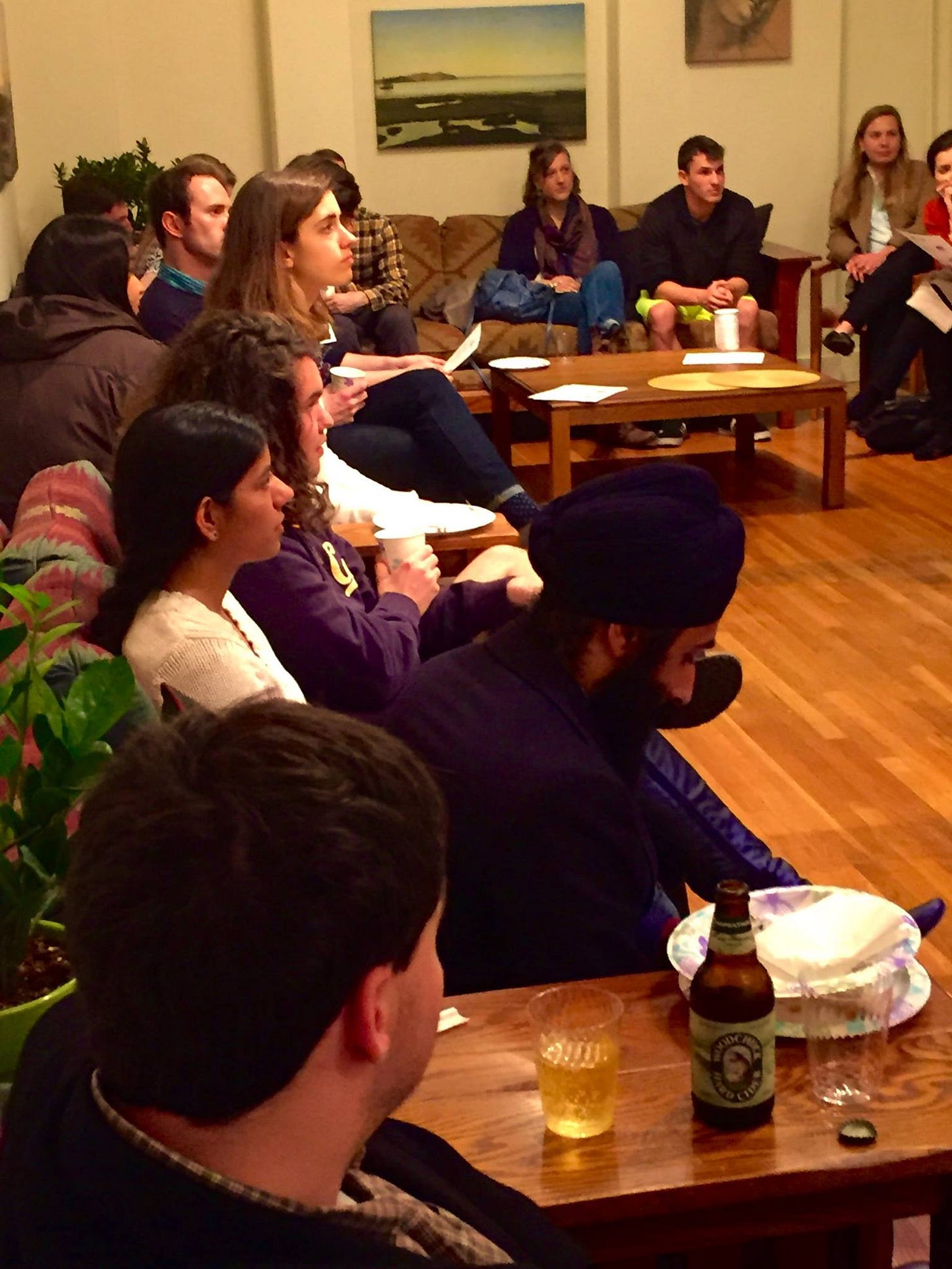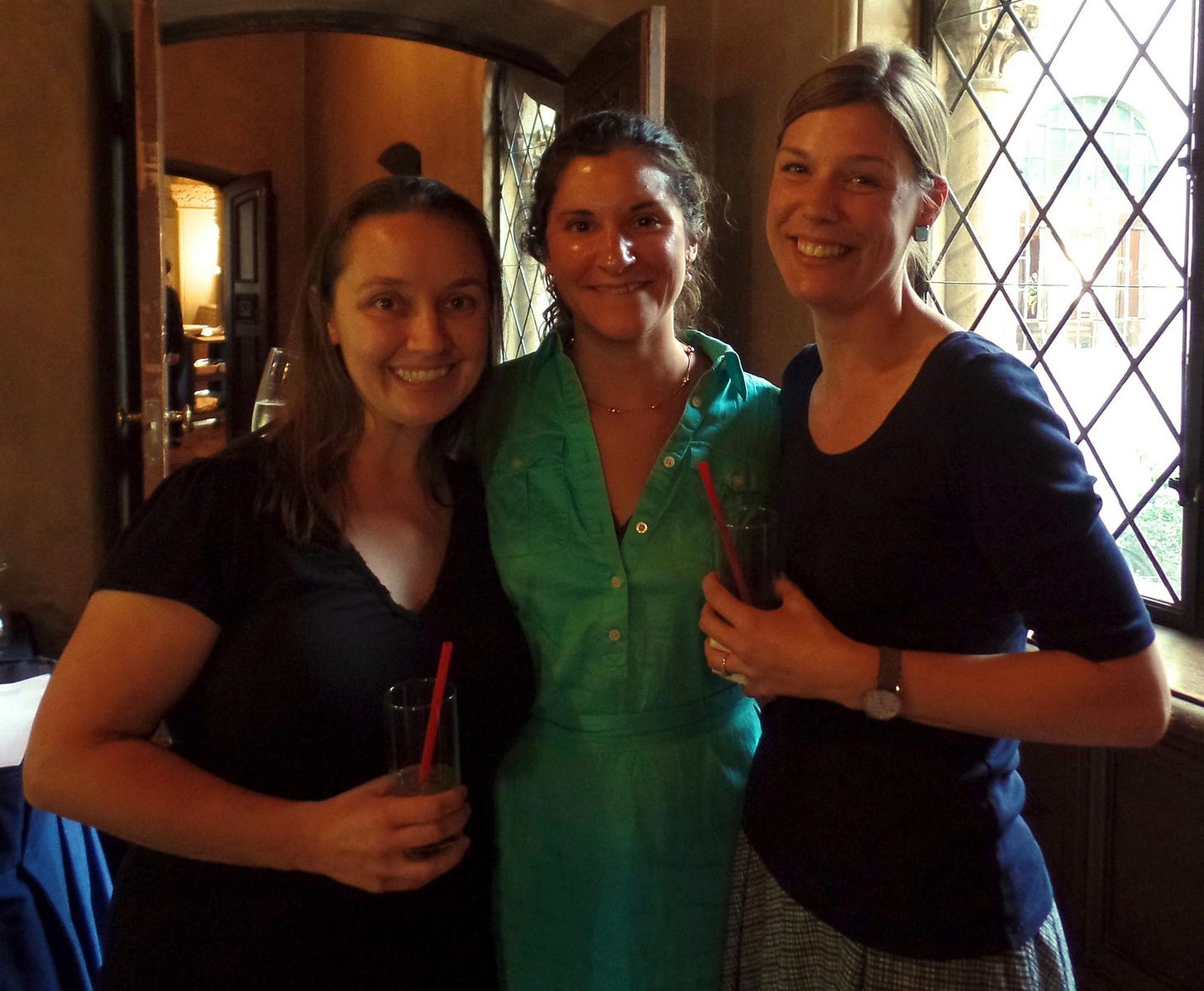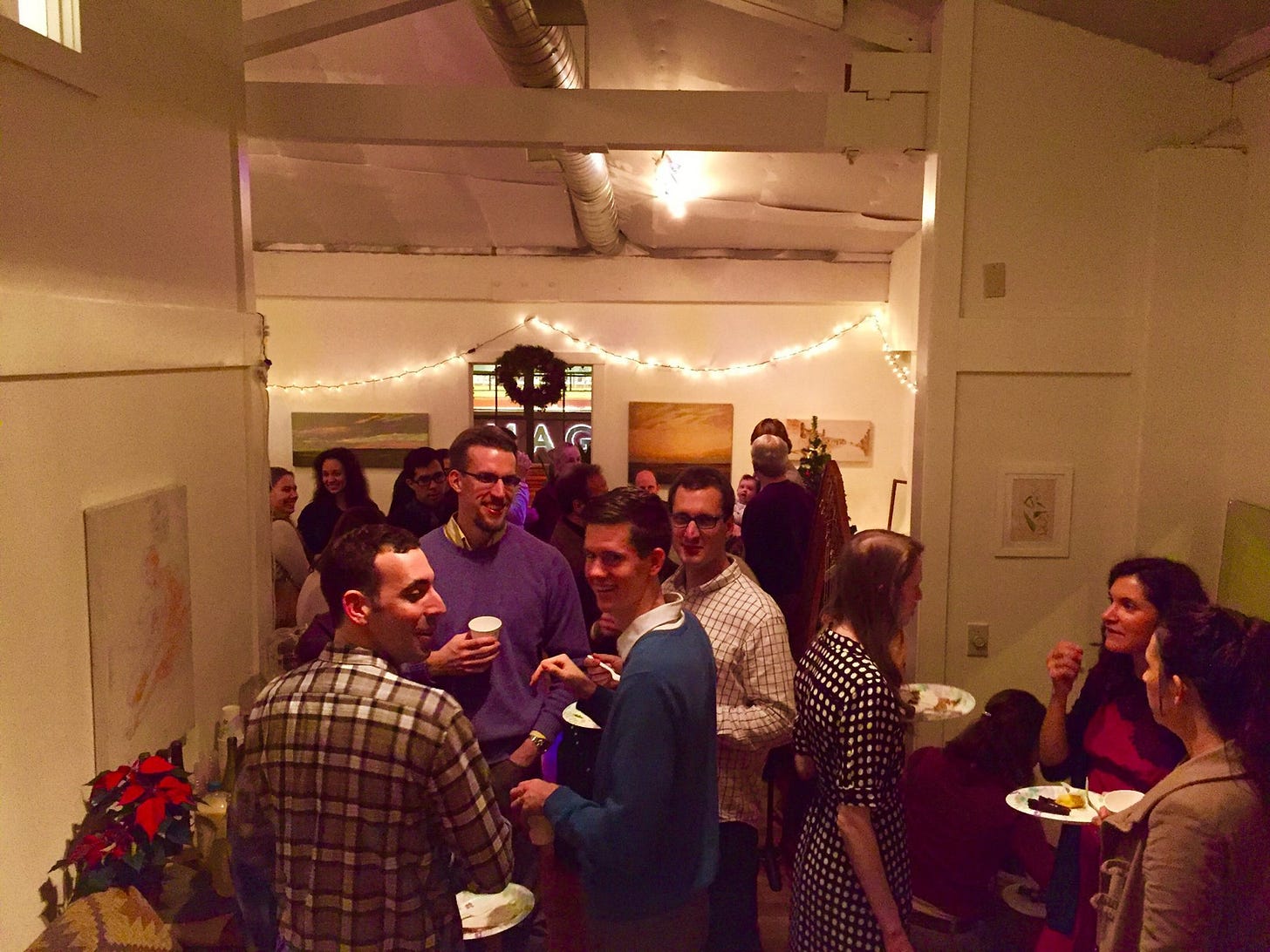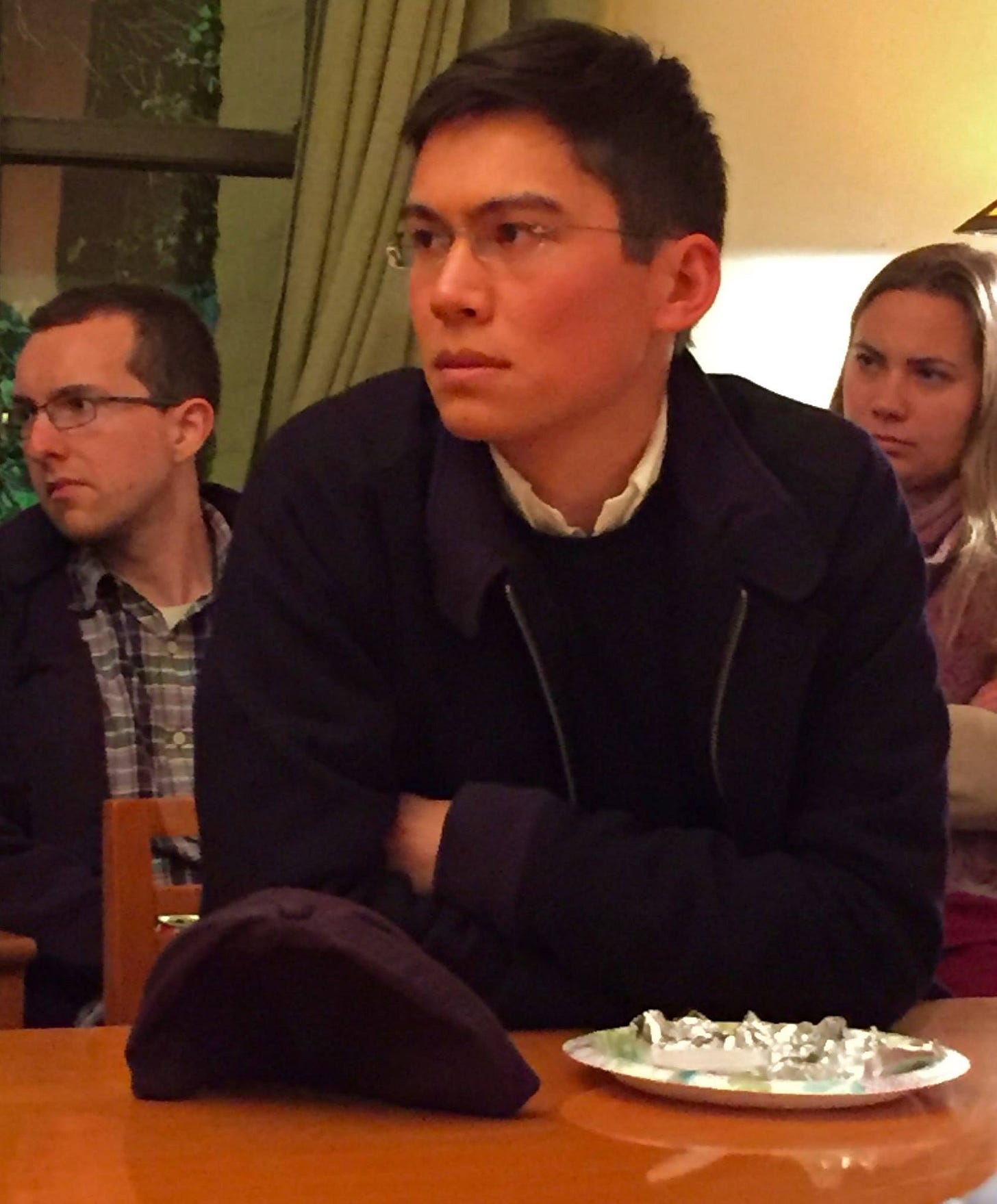"The intellectual life is not the property of specialists..."
Prof. Megan Furman and Prof. Jonathan Shelley, former Berkeley Institute students—and now professors— reflect on undergraduate education, the intellectual life, and their own formation at BINST.
In anticipation for our BINST Alumni Reunion on Saturday, August 31st, we’re sharing two interviews with alumni of our programs — discussing undergraduate education, the intellectual life and their own formation at the Berkeley Institute.
We look forward to bringing together alumni of Berkeley Institute programming on Saturday, August 31st for our reunion. We have a slate of events scheduled that will return us to the questions and friendships that have animated our time at BINST. For more information and to register, see here.
The Berkeley Institute is a collaborative effort, and our alumni community is critical to the work we do. Through their intellectual contributions, financial support, academic network, engaged collaboration and championing efforts we are able to continue. To all our alumni: Thank you for making the Berkeley Institute the community that it is.

A conversation with BINST Alumna, Professor Megan Furman:
What do you do now? When were you involved in the BI?
I am now an Assistant Professor of Philosophy at Sacred Heart Seminary and School of Theology in Hales Corners, WI. I teach philosophy to your future priests! I was involved at the BI from 2015-2016, shortly after finishing coursework at the Dominican School of Philosophy and Theology in Berkeley. I worked as Assistant Director for Programs with Matt Rose.
What was your favorite program at the Berkeley Institute?
I loved Steve Justice's seminar on Dante's Paradiso. I remember Steve observing that the Paradiso is probably the least relatable of the three canticles, and the most difficult for an author to compose, particularly because he has to use language and image to describe a realm in which language and image (as we know them) pass away. That has led to tremendous reflection, in subsequent years, on the relationships among language, image, and reality.
How did the Berkeley Institute shape your intellectual, artistic, or professional work?
The BI gave me opportunities to observe and practice facilitating seminars. I learned a tremendous amount by observing Matt Rose's careful way of selecting concise passages and facilitating discussion through Socratic questioning.
The BI offered encouraging evidence, too, that the intellectual life is not the property of specialists but of anyone who cares enough to ask big questions and seek answers. The most interesting conversations we had at the BI centered around human questions: What is a vocation? What is work? Why does beauty matter? We brought together resources from our various disciplines and met on the common ground of what is human. That experience has made me, I think, not only a better teacher but a better interlocutor overall. It showed me that learning is a matter not first and foremost of expertise, but of relevance. That means that if I wish to introduce someone to a new domain of knowledge, a new argument, a new possibility -- I have to show them why it matters or what's at stake. Once someone has been bitten by that spirit of inquiry, however, life blossoms into color! I've taken that awareness into teaching at every level -- from college Freshmen to graduate students to my elementary-aged nieces and nephews.
In what sort of ways have you seen the Berkeley Institute provide intellectual grounding for students? How has it helped students make sense of their studies?
The university experience seems to pick up three steps ahead of where many students are, and -- in some cases -- to obscure major questions with minor focii. I recall -- as an English major -- being handed secondary literature before I'd even encountered certain primary texts. I remember being told that my questions were too big for the parameters of my discipline. If that was true, where was I to ask them? Ultimately they landed me in philosophy -- which has its own internal debates concerning methods and subject matter. Must one navigate these debates in philosophy in order to justify one's questions? Or can one, simply insofar as one is human, justifiably ask?
To the extent that one adopts a generous enough view of philosophy, then the discipline can admit all questions under the sun. But as an academic discipline, it can't. That tension is both necessary and problematic. On the one hand, it enables us to distinguish what is knowable to natural reason from what is knowable only by, say, Revelation. It enables us, too, to distinguish between logical and poetic argument. Yet suppose I were asking the quite natural question about the meaning of life as such. Suppose I were asking that question sincerely, maybe even with a sense of urgency. Wouldn't I be willing to entertain answers proposed by natural or purportedly supernatural sources, whether they appear in syllogistic or poetic form? Wouldn't I seek answers in the great works of music and the other arts?
Whether as a result of disciplinary method or practical necessity, the big questions tend to get eschewed from university disciplines, at least to the extent that asking them requires drawing from other disciplines. Where, then, is one to ask the human questions, the questions motivating -- and renewed by -- philosophy and poetry, science and religion? Where does one ask about who we are, how this came to be, how we know, what we can trust, what it's all about?
The Berkeley Institute is the place where you can ask these sorts of questions, and where other people are asking them, too. It is a place where one can draw on resources from different disciplines in order to assemble prismatic insights into the issues that really incite our perplexity -- and hopefully, ultimately, our wonder.
A Conversation with BINST Alum, Professor Jonathan Shelley:
What do you do now? When were you involved in the BI?
I’m an assistant professor of English at St. John Fisher University in Rochester, NY. I was involved with the BI from 2014 until I received my PhD from UC Berkeley in 2018.
What was your favorite program at the Berkeley Institute? Or favorite memory?
My memories of the Berkeley Institute are constructed through a kind of constellation of texts I recall reading with people there. It was the first place I read Paulo Freire’s Pedagogy of the Oppressed. I remember reading Thomas Kuhn’s The Structure of Scientific Revolutions as part of a philosophy of science seminar in which we also talked about feminist science. I remember reading Patrick Deneen’s Why Liberalism Failed and Matthew Crawford’s Shop Class as Soulcraft. I remember Caleb Brown doing screenings of WALL-E and The Book of Eli that felt like the equivalent of a whole semester of film class. They made me realize I had no idea how to watch film. They were that good.
In what sort of ways have you seen the Berkeley Institute provide intellectual grounding for students? How has it helped students make sense of their studies?
The Berkeley Institute] provided me with broad, essential frameworks — theological, political, scientific, philosophical — for thinking about intellectual history. I now regularly use these frameworks to help structure course content for undergrads.
I think back about those times and the feeling in those rooms, and I think about the way in which the Berkeley Institute was giving us all these common texts. It was giving us a shared groundwork from which to speak, but also a common set of intellectual texts to know. I think it helped me make sense of my world (academic and otherwise) more than something as comparatively limited as my studies.
And it imparted a kind of ethic as much as it did a methodology. It’s an ethic of reception—though not a passive one—that sort of says, “know this; it’s good for you.” I suppose that comes from the fact that, unlike coursework, no one has to be there. So the “grounding” or “sense” is not so much a knowledge but a chance to perform a commitment, to say “this is important.”









